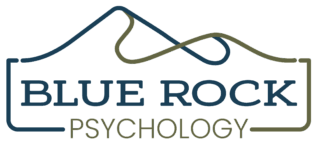Therapy Modalities:
EMOTIONALLY FOCUSED THERAPY (EFT)
At Blue Rock Psychology, our main modality is Emotionally-Focused Couples Therapy (EFCT) and Emotionally-Focused Individual Therapy (EFIT).
Developed by Sue Johnson, EFT is an evidence-based approach that is rooted in attachment science. This approach helps individuals, couples, and families explore and transform their emotional experiences to improve relationships and overall well-being.
EFT emphasizes the importance of emotional connection and security in relationships. All humans have attachment needs, fears, and longings. We experience distress when our needs are not being met. With pain and fear, we change our behaviour. We end up interacting in ways that lead to feeling more alone or disconnected.
In EFT, we aim to help clients become more aware of their emotions, learn to express them in a healthy way, and develop more secure and fulfilling connections with themselves and others.

Emotionally-Focused Couples Therapy (EFCT):
In EFCT, couples will learn to move from reactive (secondary) emotions to vulnerable (primary) emotions. We practice sharing vulnerably and learning how to hold what is shared. We find your negative cycle and help you learn to step out of it. When you are less activated, you will communicate and understand more clearly. The process creates safety and enhanced ability to solve problems.
Emotionally-Focused Individual Therapy (EFIT):
EFIT enables emotional regulation and internal coping. Often, we protect ourselves from feeling core emotions like fear or pain by replacing them with protections like anger or hiding. In EFIT, we process emotions without suppressing or escalating. We will connect with core emotions that exist below the surface. This will help break ineffective cycles in relationships as these buried and unexpressed emotions often lead to patterns of distress. The therapist guides the client into new patterns as they express core emotions in a new way in therapy.

Additional Theories:
We like to be flexible and chameleon for clients' needs, where possible. Here are some additional approaches you may experience here:
Accelerated Resolution Therapy (ART):
ART uses eye movements (bilateral stimulation), visualization, and other creative techniques to help process and resolve traumatic memories and other distressing experiences. ART is a relatively short-term approach, usually used in combination with other approaches. Positive results can usually be achieved in just a few sessions.
Acceptance and Commitment Therapy (ACT):
ACT is about accepting difficult thoughts and feelings without trying to control them. We practice committed action that aligns with your chosen values. This type of therapy aids in increasing “psychological flexibility,” defined as the ability to make space for challenges and prioritize values even in the presence of the discomfort of anxiety, depression, or stress.
Cognitive Behavioural Therapy (CBT):
CBT is a structured, evidence-based approach that examines the connections between thoughts, feelings, and behaviours. Clients learn to identify unhelpful thinking patterns, challenge them, and replace them with more balanced perspectives. CBT is often short-term and goal-oriented, offering practical skills to manage distress, improve problem-solving, and support mental well-being.
Gottman Method:
The Gottman Method is a couples’ therapy approach that aims to enhance relationship skills by building closeness, friendship, and shared meaning. It emphasizes disarming conflict, increasing intimacy, and fostering empathy and understanding between partners. It offers many tools and strategies for addressing problems and navigating life together as a happy union.
Humanistic Therapy:
Humanistic Therapy is rooted in the belief that every person has an innate capacity for growth, healing, and authenticity. It emphasizes openness, self-awareness, and meaning-making in life. By focusing on the whole person rather than symptoms alone, Humanistic Therapy helps clients explore their true selves, align with values, and move toward a more fulfilling life.
Internal Family Systems (IFS):
In IFS, we view the mind and soul as comprised of many “Parts” (i.e., subpersonalities). Each Part has a unique role and generates certain thoughts, feelings, and sensations. With IFS, we seek to uncover the core, compassionate "Self" that can lead and heal the Parts. IFS aims to help individuals accept, understand, embrace, and integrate their Parts, creating internal harmony and healing.
Narrative Therapy:
Narrative Therapy is based on the idea that the stories we tell about ourselves shape how we see the world and our place in it. Sometimes these stories become problem-focused or limiting. In therapy, we work together to “re-author” stories in ways that highlight strengths, values, and resilience. This creates space to see challenges differently and fosters empowerment and a stronger sense of self.
Psychodynamic Therapy:
Psychodynamic Therapy explores how past experiences, early relationships, and unconscious processes influence present emotions and behaviours. By bringing hidden thoughts and patterns into awareness, clients gain insight into the root causes of struggles. This approach encourages reflection and emotional awareness, supporting lasting growth and deeper understanding of self and relationships.

"Being the “best you can be” is really only possible when you are deeply connected to another. Splendid isolation is for planets, not people."
– Sue Johnson
